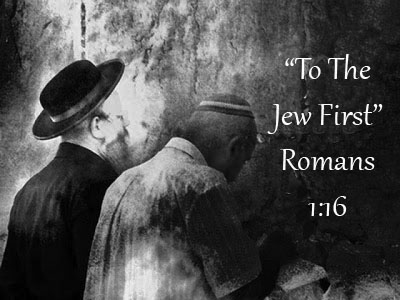Historical Issues for Jewish Unbelief in Yeshua (Part 2 of 3)
II. The destruction of the 2nd Temple (and the dispersion), AD 70 – 135
Atoning sacrifice is one of the most basic tenets of biblical Judaism. Yet today Jewish people by and large have disavowed it. Why? In last month’s article, “A Fence Around the Law” it was shown that misguided reverence for the Oral Law was developed by the rabbinical leadership between 516 BC- AD 70. This view of Scripture interpreted through Oral Law ultimately contributed to Jewish rejection of Yeshua as Messiah. This month we consider the second period in Jewish history, AD 70 – 135–from the fall of Jerusalem to the ‘Gentilization’ of the Church. What happened during this time inhibits my people even today from seeing Yeshua as their atoning sacrifice.
Temple Sacrifices
The faith of Israel through its history was based on the sacrificial system centered in the Tabernacle and later the Temple. One could only approach God by first offering a sacrifice. With that in mind, the question arises: “Why do Jewish people today consider sacrificial atonement irrelevant to Judaism?” With the destruction of the Temple in AD 70, the Jewish religious leaders faced an enormous problem: how were they to maintain a people of faith without the prescribed sacrifices at the altar and the Temple? Incredibly, the way the religious leaders reinterpreted the meaning of sacrifices 2,000 years ago affects Jewish thought and theology to this day.
Symbolic Sacrifices
Even before the Temple was destroyed, sacrifices were seen as symbolic. Philo (20 BC – AD 40), a Jewish philosopher from Alexandria, Egypt, taught that Temple offerings were mainly symbolic in nature, and wrote that “the offering of domesticated animals [sheep, goats, bullocks] and gentle birds symbolized the submissive offerer.” Since these non-aggressive creatures were viewed as the ‘persecuted’ in the animal world, the rabbis went on to interpret that the offering spoke of the idea that “the one pursued is accepted by God...” (Leviticus Rabbah 27:5).
Secondary Sacrifices
Prayer
The importance of sacrifices was viewed as secondary. Since repentance or contrition was necessary along with the sacrifice (Lev. 23:27), the removal of the sacrifice merely enhanced repentance as the essential element for atonement. “Prayer,” therefore, was considered even “more efficacious than sacrifices” (Talmud Ber. 32b).
Religious Rites
Along with prayer, other religious practices came to be seen as equivalent substitutes for sacrifices. Even studying the verses of Scripture on sacrifice is regarded as one having offered the sacrifice: “whoever occupies himself with the study of Torah needs neither burnt offering, nor meal offering, nor sin offering nor guilt offering” (Talmud Men. 110a). The reciting of the Shema (“Hear O Israel…” Deut. 6:4) and the wearing of phylacteries are “as if he had built an altar and offered a sacrifice upon it” (Tal. Ber. 15a).
Fasting
Fasting as well, became the equivalent of sacrifice, as seen in the prayer of Rabbi Sheshet recited on the evening after a fast day: “Lord of the World, when the Temple was standing, one offered a sacrifice of which only the fat and blood were taken, and thereby his sins were forgiven. I have fasted today and through this fasting my blood and my fat have been decreased. Deign to look upon the pint of my blood and my fat which I have lost through my fasting as if I had offered it to Thee upon the altar, do Thou favor me” (Tal. Ber. 17a). Later on, certain medieval rabbis taught that the sacrifices were substitutes for judgment on the offerer (Jacob ben Ascher). This was especially meaningful to Kabbalists (Jewish mystics) and Eastern Europeans, who used a chicken in ritual sacrifice (Jewish Encyclopedia, Kapparah, pp 435-436).
Wounds & Death
A noted Jewish scholar from the 19th century, Solomon Schechter, went so far as to teach that our own wounds atone for our sins, and that certainly the death of a sinner would atone for his own sins. He even suggested that an innocent child dying would atone for his generation (Aspects of Rabbinic Judaism, pp. 308-310). The rabbis and writers of the Talmud made much of certain Scriptures: “The sacrifices of God are a broken spirit” (Ps. 51:17), and “take words with you and return to the Lord. Say to Him, ‘Take away our iniquity, and receive us graciously that we might present the fruit of our lips’” (Hosea 14:2). What these scholars and rabbis overlooked is that in the Scriptures, the Lord gave these truths regarding repentance and contrition in light of the need for blood sacrifice, and never apart from the offerings. Maimonides (12th century rabbi, Moses ben Maimon) went so far as to declare that sacrifice was archaic religion from which God had weaned Israel. Thus modern Jewish writers such as Trude Weiss-Rosmarin, look upon faith in Yeshua and the doctrine of vicarious atonement as unreasonable: “The idea of ‘vicarious atonement,’ that is to say, the payment of the penalty not by the sinner but by a substitute, is irreconcilable with Jewish ethics” (Judaism & Christianity: The Differences, p. 52 ).
Saul’s Sacrifice
What is patently ignored is that God considers sacrificial, substitutionary atonement to be of utmost importance, even when it isn’t convenient. For instance, in the Hebrew Scriptures we read that God condemned certain kings (Saul and Uzziah) for assuming the right to perform sacrifice apart from the way He had prescribed. In I Samuel 13, King Saul grew impatient while waiting for Samuel to arrive and make sacrifices before he could proceed with the battle. In a fit of pragmatism Saul offered the sacrifices himself (v.10), and when Samuel arrived, Saul gave a ‘reasonable explanation’ that he had to get on with his attack. Samuel then rebuked Saul by saying that this act was foolishness, that Saul had “not kept the commandment of the Lord your God, which He commanded you… But now your kingdom shall not endure. The Lord has sought out for Himself a man after His own heart, and has appointed him as ruler over His people, because you have not kept what the Lord commanded you” (I Sam. 13:13-14).
Scriptural Sacrifice
Why is God such a stickler about sacrifices? Because the Word of God and God’s priorities cannot be overlooked. God has told us how He wants to be approached. It is not up to man to determine these things. For instance, if someone broke your $400 window, but offered you only $25 to replace it, that would be sheer arrogance on their part. Rather than offering you what they thought the window was worth, it would be up to you to determine its value. The doctrine of atonement (see Isaiah 53) has been lost to my people. Thus in the eyes of many Jewish people, believers make too much of sin, and Yeshua’s death seems to be an unnecessary sacrifice. Yet even a perusal of Scripture informs us that no one approaches God without a sacrifice: “For the life of the flesh is in the blood, and I have given it to you on the altar to make atonement for your souls; for it is the blood by reason of the life that makes atonement.” (Lev. 17:11)
As It is Written
Surprisingly, even the disciples had a hard time understanding the need for Messiah’s atoning death and the promise of His resurrection: “These are My Words… that all things which are written about Me in the Law of Moses and the Prophets, and in the Psalms must be fulfilled.” Then He opened their minds, that they might understand the Scriptures. He said to them, “Thus it is written, and thus it was necessary for the Messiah to suffer and to rise from the dead the third day…” (Luke 24:44-46). As Yeshua taught those disciples then, the Jewish people need to be taught today: it is what the Bible says that matters, not the traditions of men. Please pray that my people will come to understand not only the condemnation for sin, but their need for atonement, and that God allowed the Temple to be destroyed because the ultimate and final atoning sacrifice has been made in Messiah’s death!




Add Comment